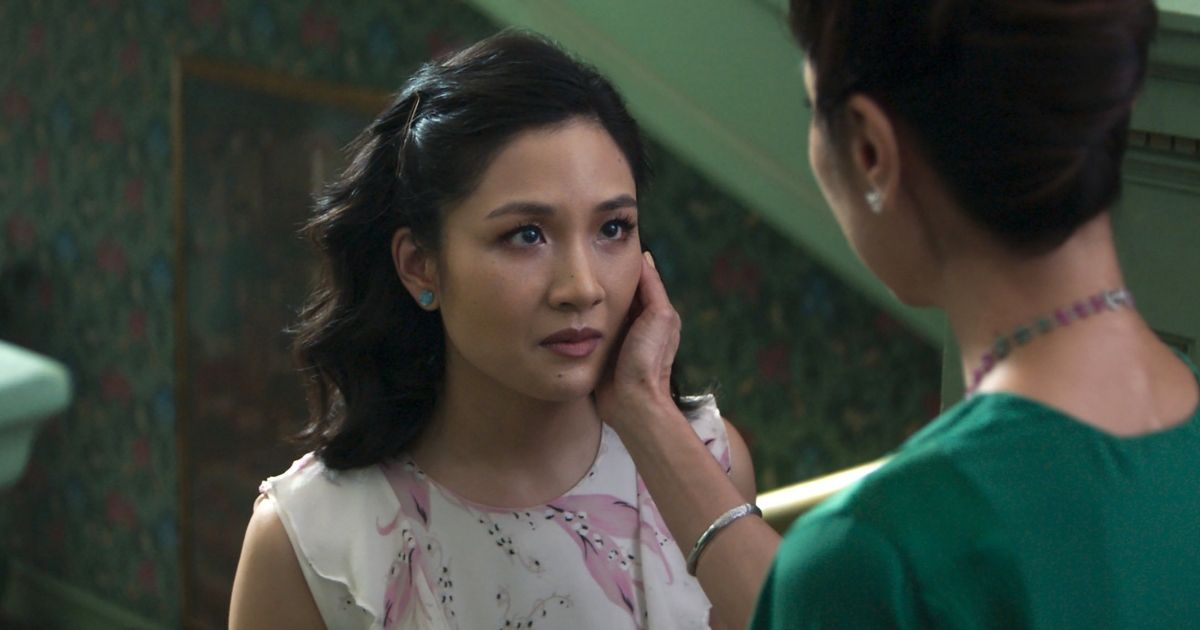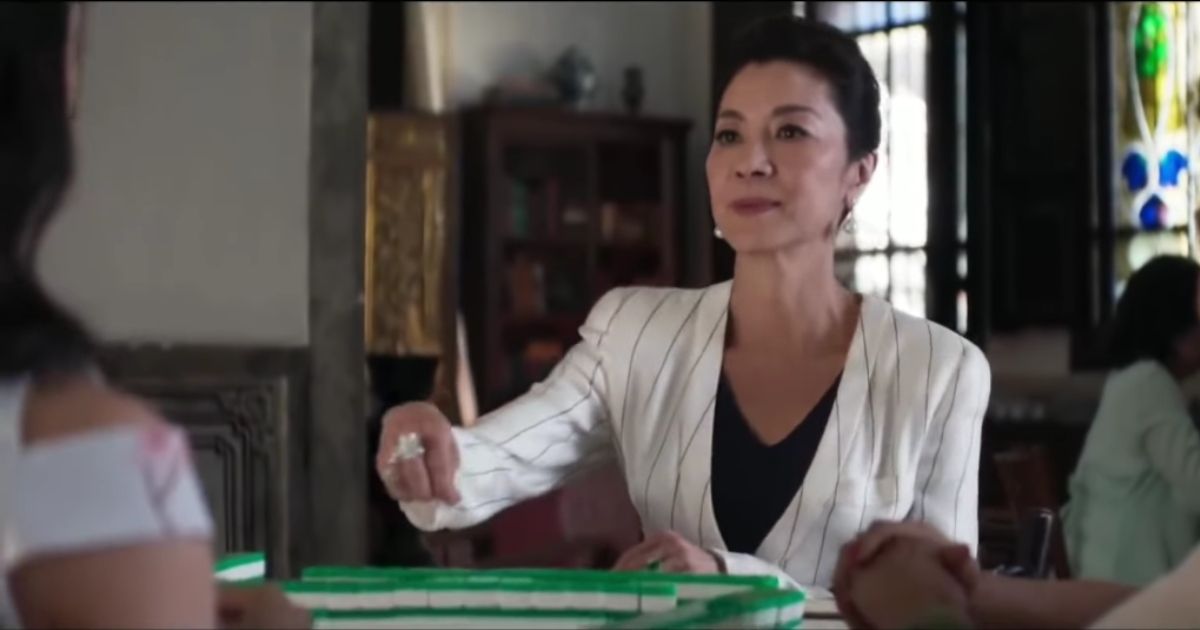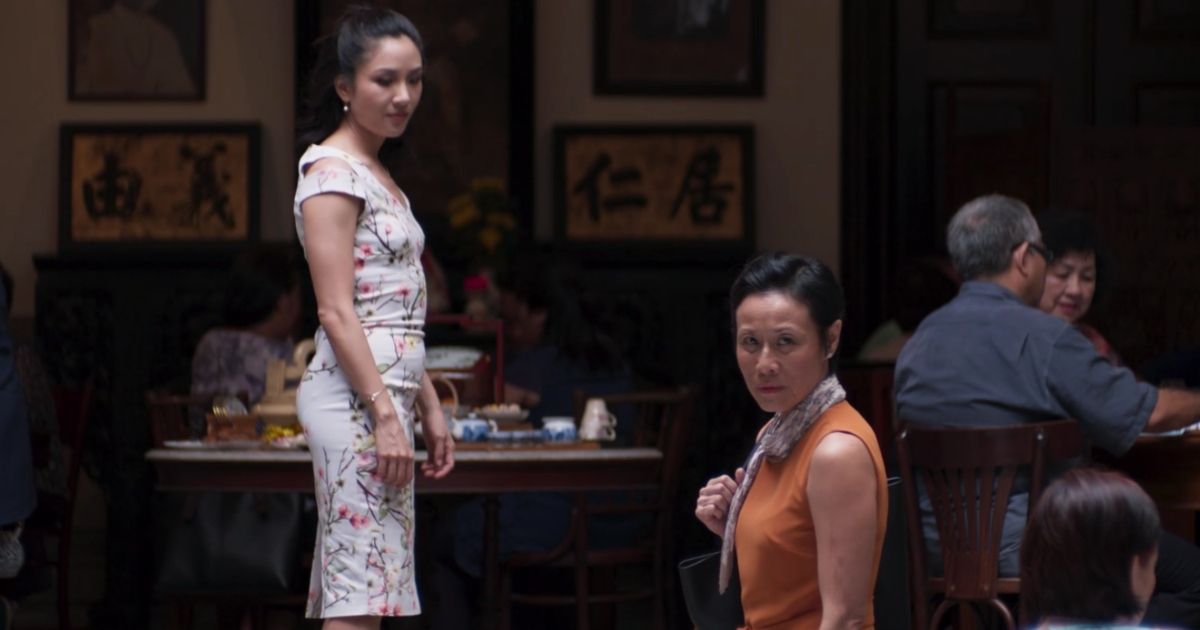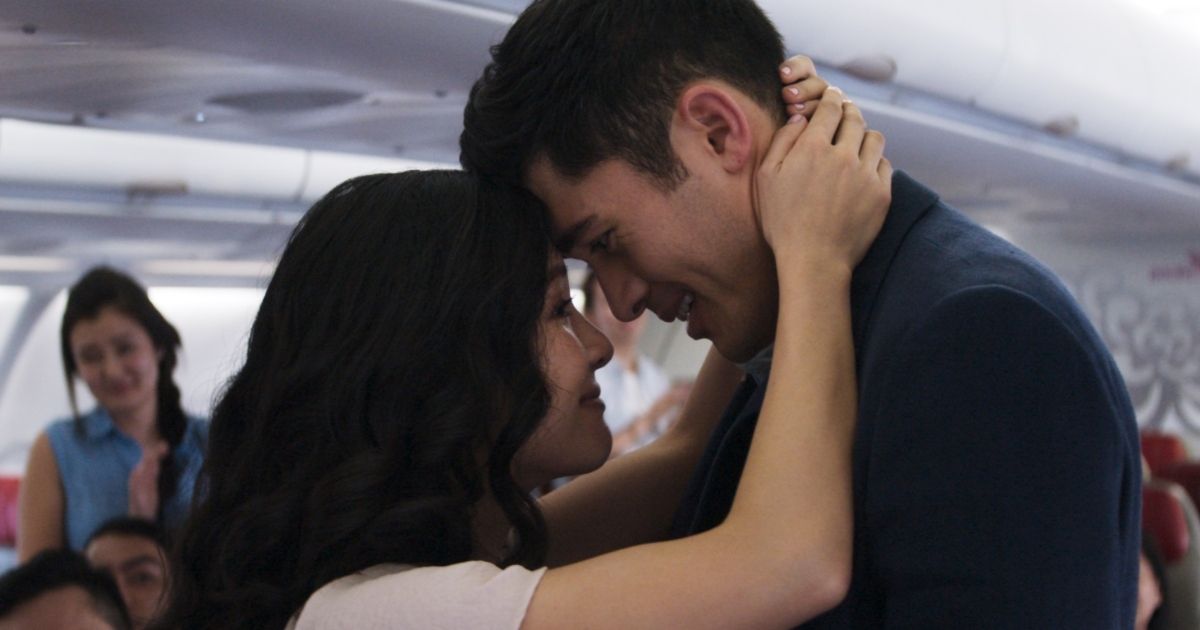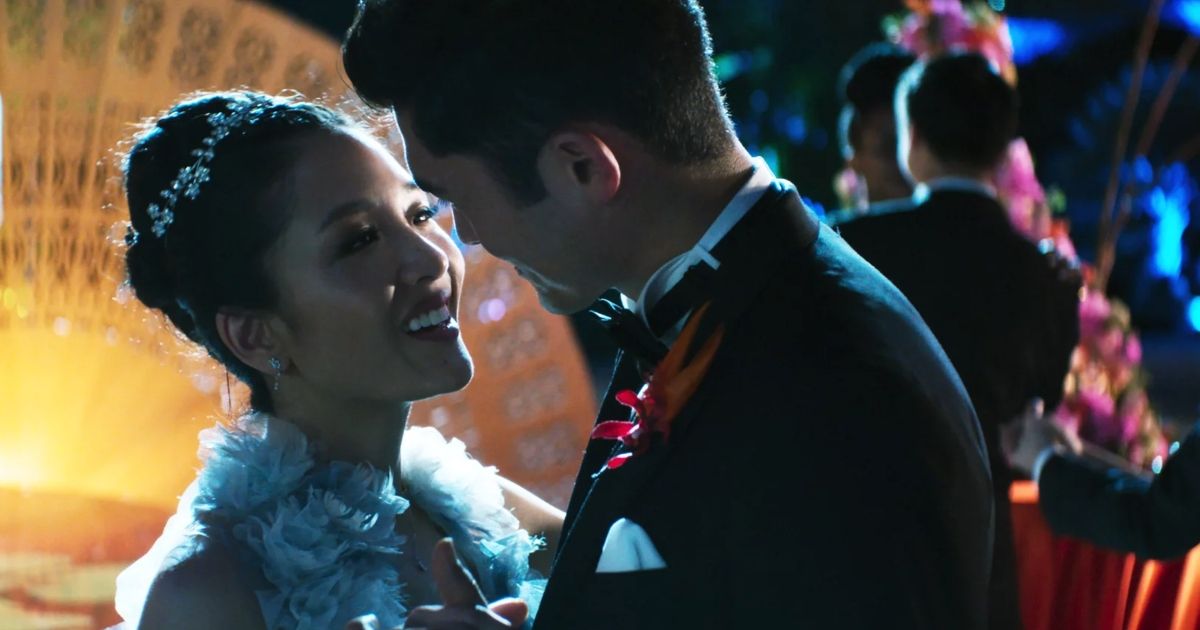Crazy Rich Asians, hailed by critics and loved by fans, is the highest-grossing romantic comedy of the last 18 years and an example of how Hollywood can break new ground even in the most predictable genre. Five years after its release, amid rumblings about a sequel (more on that below), the movie is still reaching new fans.
Part of the appeal of Crazy Rich Asians is its powerhouse ending. The film’s climax avoids the usual “boy chases girl to the airport” clichés (even though the boy does chase the girl to the airport) in favor of a thematically resonant examination of cultural differences. Here’s an explanation of the many things at play in the ending of Crazy Rich Asians. Spoilers to follow.
Culture Clash
Crazy Rich Asians follows the relationship between Chinese American Rachel Chu (Constance Wu), an NYU professor of game theory, and Nick Young (Henry Golding), the only son of Chinese billionaires. Rachel is unaware of Nick’s immense wealth until she accompanies him on a trip to Singapore for a friend’s wedding and meets his extended family.
The film is unlike most rom-coms in that the central conflict isn’t between the love interests themselves. Instead, the movie focuses on the clash between Rachel and Eleanor (Michelle Yeoh), Nick’s mother. Eleanor’s issue with Rachel isn’t her lack of fortune, but her lack of traditional Chinese values. When they first meet, Rachel describes her mother’s struggle to raise her as a single parent and her own drive to succeed as NYU’s youngest professor. Eleanor’s crisp retort is, “Pursuing one’s passions… how American.”
Later, when Rachel notices Eleanor’s emerald engagement ring, Eleanor explains that her husband had it made because her disapproving mother-in-law wouldn’t let him propose with the family ring. “I had no idea the work and the sacrifice it would take,” she says. “There were many days I wondered if I would ever measure up.” Then she goes in for the kill. “But having been through it all, I know this much… you will never be enough.”
A Mahjong Showdown
This conflict comes to a head in the film’s climax, when Eleanor unearths dirt about Rachel’s mother’s past. Mortified, Rachel books a flight back to the U.S. Nick is devastated by his mother’s actions and proposes to Rachel on the eve of her departure, telling her he is willing to turn his back on his family and fortune to live with her in New York. We don’t see her answer but instead cut to Eleanor walking into a crowded mahjong parlor, where she finds Rachel seated at a table with an open chair.
The two women play the Chinese tile game, warily measuring each other up. Rachel occupies the ‘West’ seat while Elanor sits in the ‘East’ position, symbolizing their different cultural associations. Rachel reveals that Nick has proposed but says she turned him down. A shocked Eleanor replies, “only a fool folds a winning hand.” Mahjong players will notice that Rachel also has a winning hand in front of her. And this is where her background as a professor of game theory comes into play.
Accepting Nick’s proposal and taking him away from his family would be the equivalent of defeating Eleanor at mahjong — a temporary victory with lifelong consequences. Instead, Rachel discards the winning tile, letting Eleanor pick it up to complete her own winning hand.
The Meaning of Folding
Rachel explains that she loves Nick too much to take him from his family. She would rather let Eleanor win than cause him that much pain. But in doing so, she lets Eleanor see that she did indeed fold a winning hand, that it was only through her grace that Eleanor is going to keep her beloved son. This is the moment Eleanor realizes Rachel is willing to put family above the pursuit of her passions.
As Rachel leaves the parlor, her mother rises from a seat in the back and gives Eleanor a chilling stare. Though Rachel has just “won” by embracing the Eastern philosophy of family over the individual, her mother is sending a different message. She is supporting Rachel, but letting her fight her own battles. She has faced a very different path than Eleanor but is no less dignified or proud.
A Proposal in Coach
Rachel has boarded a plane back to the States when Nick finally catches up with her. He fights his way to the back of the plane, a stark contrast from the ultra-luxurious first class cabin they occupied on their flight to Singapore, and climbs over the seats to propose. He says he plans to return to New York with her, declaring “wherever you are in the world, that’s where I belong.”
Rachel is moved but doesn’t think anything has changed until Nick opens a box to reveal his mother’s emerald ring. The presence of the ring confirms that Eleanor has accepted her into the family. Rachel and Nick stay another night in Singapore to enjoy a lavish engagement party. And the film ends with a respectful nod shared between the two most important characters, Rachel and Eleanor.
Coldplay in Mandarin
The final minutes of Crazy Rich Asians are scored to a moving rendition of Coldplay’s Yellow, performed in Mandarin by Katherine Ho (a former contestant on The Voice).
Given the racist connotations of the color yellow in relation to Asians, the band was initially hesitant to grant permission for its use. So director Jon M. Chu wrote a letter to the band explaining his intentions. “From being called the word in a derogatory way throughout grade school, to watching movies where they called cowardly people yellow,” he wrote, “it’s always had a negative connotation in my life. That is, until I heard your song… it made me rethink my own self image.”
He added that Rachel finishes the film with “an empowering, emotional march [that] needs an anthem that lives up and beyond her inner triumph, which is where Yellow comes in.” Coldplay changed their mind and allowed the song to appear in the film, paving the way for the moving climax.
What About That Mid-Credits Scene?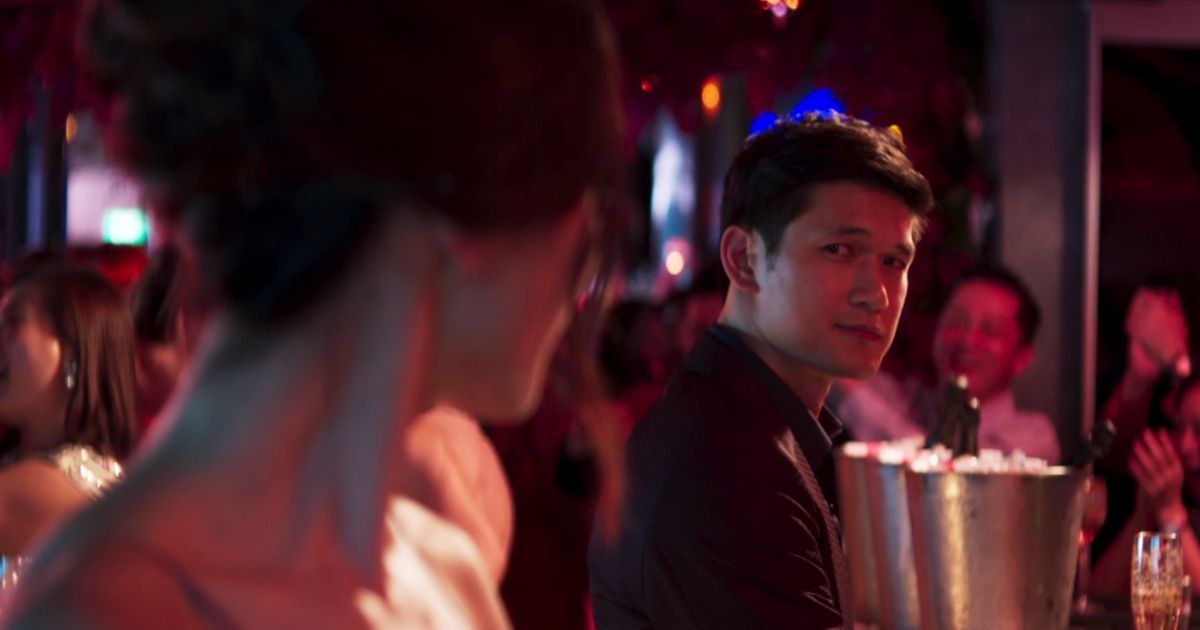
Crazy Rich Asians takes a cue from the MCU during its closing credits, dropping in a scene that hints at a possible future film. In the brief clip, Nick’s cousin Astrid (Gemma Chan) shares a glance with a mystery man (Harry Shum Jr.) during Rachel and Nick’s engagement party. Earlier in the film, Astrid left her cheating husband, telling him she is tired of hiding her wealth to protect him from his own insecurity. “It’s not my job to make you feel like a man,” she says. “I can’t make you something you’re not.” Ouch.
So who’s the man at the party? Fans of Kevin Kwan’s book series, from which the film is adapted, will recognize him as Charlie Wu, Astrid’s ex-boyfriend and true love. While a Crazy Rich Asians sequel is in the works, it looks like we’ll get a lot more of Astrid and Charlie in their own film, a planned spinoff featuring the duo.

